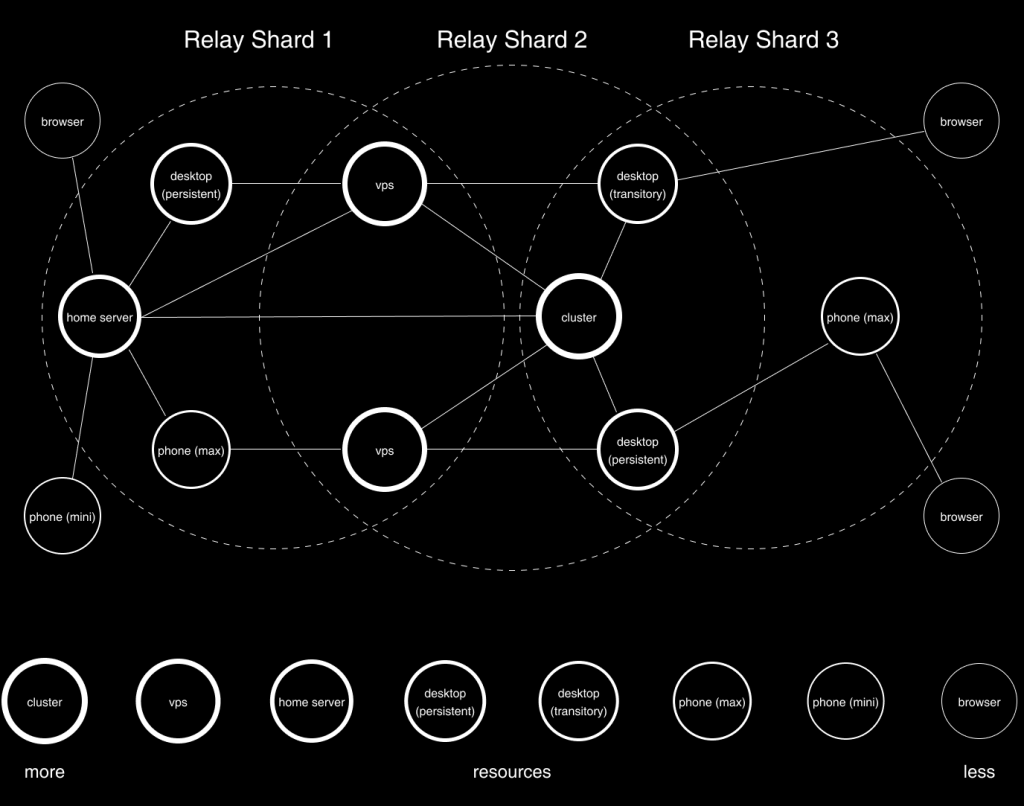KEY TAKEAWAYS
- Waku Network’s MVP aims to support one million users with DoS protection and privacy.
- The network introduces message rate-limiting while preserving anonymity through zero-knowledge proofs.
- Decentralized routing in the Waku Network offers unprecedented privacy in peer-to-peer communication.
- Launching with eight shards, the network’s scalability allows for ten thousand users per shard.
- Waku, part of the Logos technology stack, is developed by Vac to strengthen decentralized web protocols.
The Waku Network, known for its commitment to privacy and censorship resistance, has announced the launch of its Minimum Viable Product (MVP).
This milestone promises to bolster the network’s capabilities by introducing DoS protections that don’t sacrifice user privacy or freedom of expression.
DoS protections refer to measures and strategies implemented to defend against Denial of Service (DoS) attacks.
MVP Release: Scaling with Privacy
The much-anticipated MVP release marks a significant step for the Waku Network, as it is now ready to undergo real user trials within web3 applications.
With the capacity to support up to one million users, the MVP notably scales beyond the peak user count of the largest peer-to-peer network recorded in 2008, BitTorrent.
However, it is estimated that the current infrastructure can stably support around eighty thousand users.
DoS Protections and User Privacy
A stellar feature of the Waku Network’s MVP is the implementation of message rate-limiting as a means to provide DoS protections.
To maintain user anonymity, the network incorporates zero-knowledge proof membership verification within each message, initially capping publishers at one message per second.
The Waku team is actively considering different approaches to message rate-limiting, striving for a balance between network health and user experience.
A zero-knowledge proof is a cryptographic protocol that allows one party (the prover) to prove to another party (the verifier) that a statement is true, without revealing any additional information about the statement.
Pioneering Decentralized Routing
The Waku Network has launched the first usable implementation of decentralized routing within a shared communications layer.
Unlike traditional decentralized messaging that relies on direct communication between peers, Waku Network’s approach decentralizes the communication path itself, significantly enhancing user privacy.
Additionally, the network’s scalability is improved through the implementation of sharding.
Sharding refers to a technique used to improve scalability in blockchain networks by dividing the network into smaller, more manageable parts called shards.

Sharding for Scalability
To effectively manage the user load and maintain reasonable bandwidth requirements for relay nodes, the Waku Network introduces eight shards at launch.
Each shard is designed to support up to ten thousand active users, with the potential to accommodate much larger numbers, given that only a fraction of users are active simultaneously.
As the network grows, a roadmap is in place to continue scaling efforts.
Waku’s Vision
Waku is an open-source suite of decentralized messaging protocols that empower users to take control of their data and communication.
As the communications layer for the Logos technology stack, Waku is instrumental in creating a self-sovereign, decentralized technology ecosystem.
Behind Waku is Vac, a team dedicated to constructing public good protocols that fortify the decentralized web, ensuring that user freedom remains at the forefront of technological advancement.
LATEST POSTS
- Peter Schiff: The Bitcoin Denier Who Once Praised It
- Block Inc. Unveils Bitkey: A New Frontier in Bitcoin Self-Custody Solutions
- SubQuery Network: Catalyzing Web3’s Decentralized Future
- Animoca Brands Amplifies GameFi and NFT Ventures Through Strategic Moves
- Llama Land: A Revolutionary Gamefi Project Shaping the Future of Gaming
Previous Articles:
- Peter Schiff: The Bitcoin Denier Who Once Praised It
- Block Inc. Unveils Bitkey: A New Frontier in Bitcoin Self-Custody Solutions
- SubQuery Network: Catalyzing Web3’s Decentralized Future
- Animoca Brands Amplifies GameFi and NFT Ventures Through Strategic Moves
- Llama Land: A Revolutionary Gamefi Project Shaping the Future of Gaming
